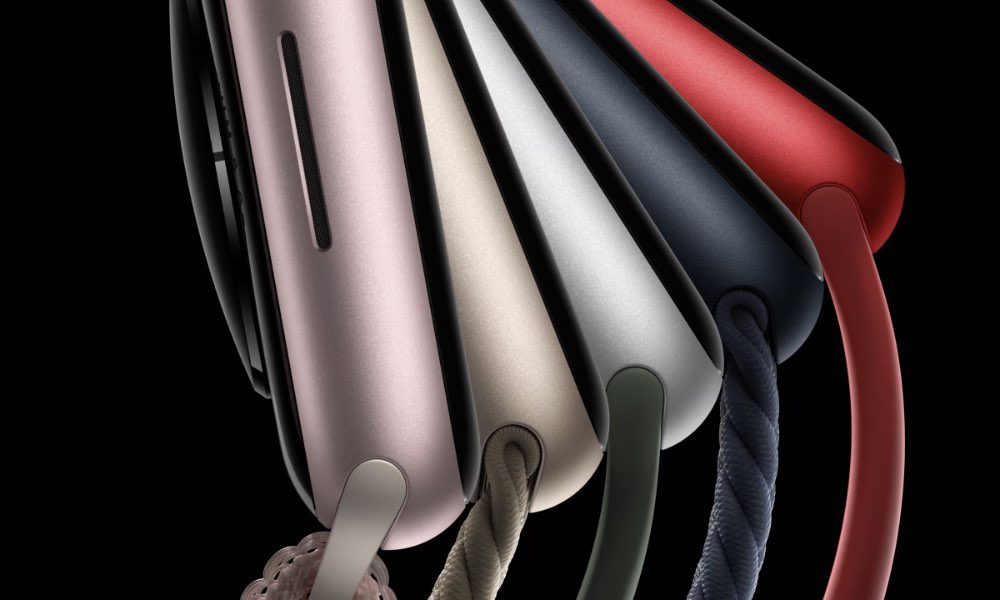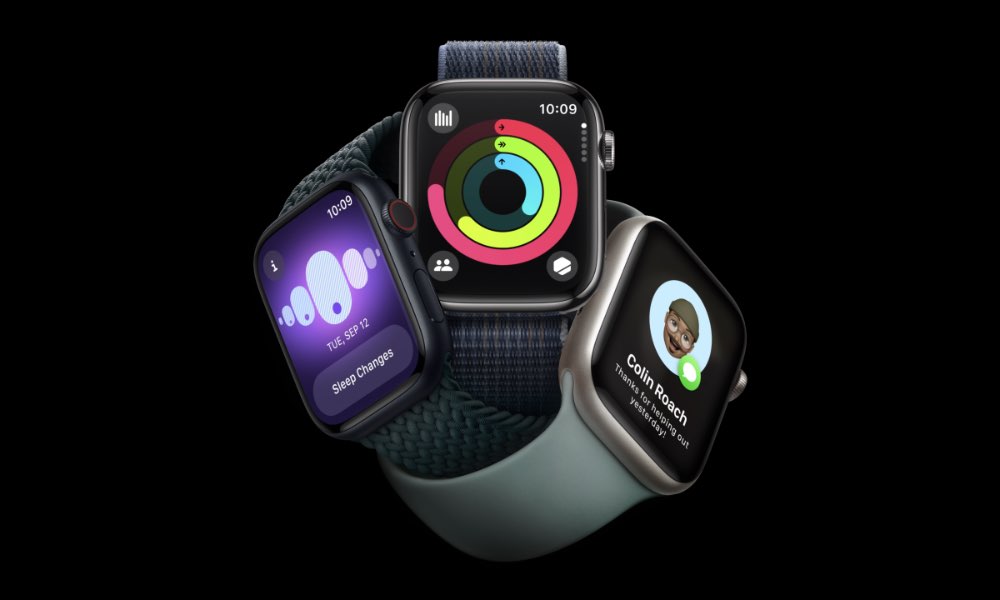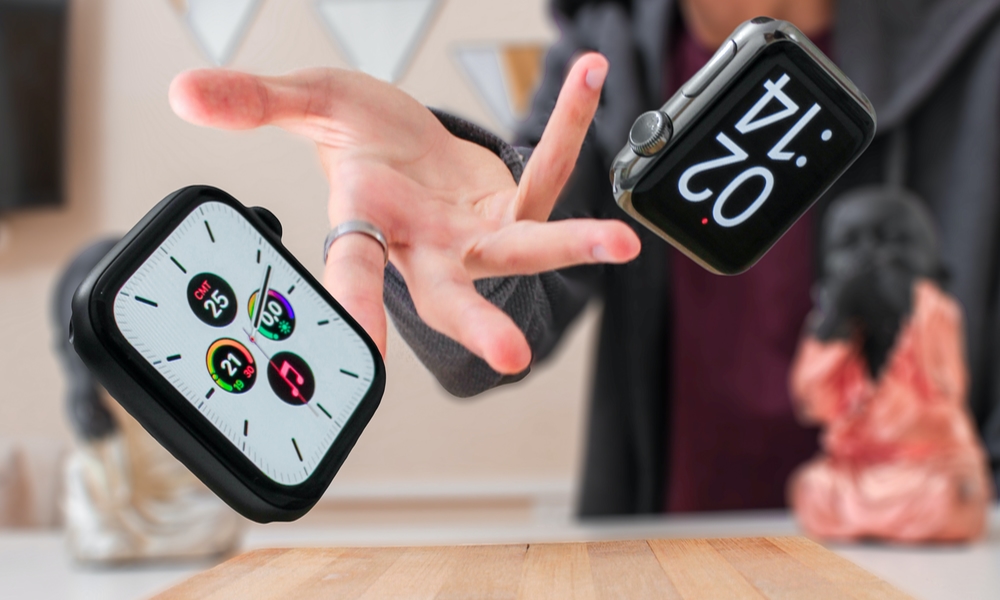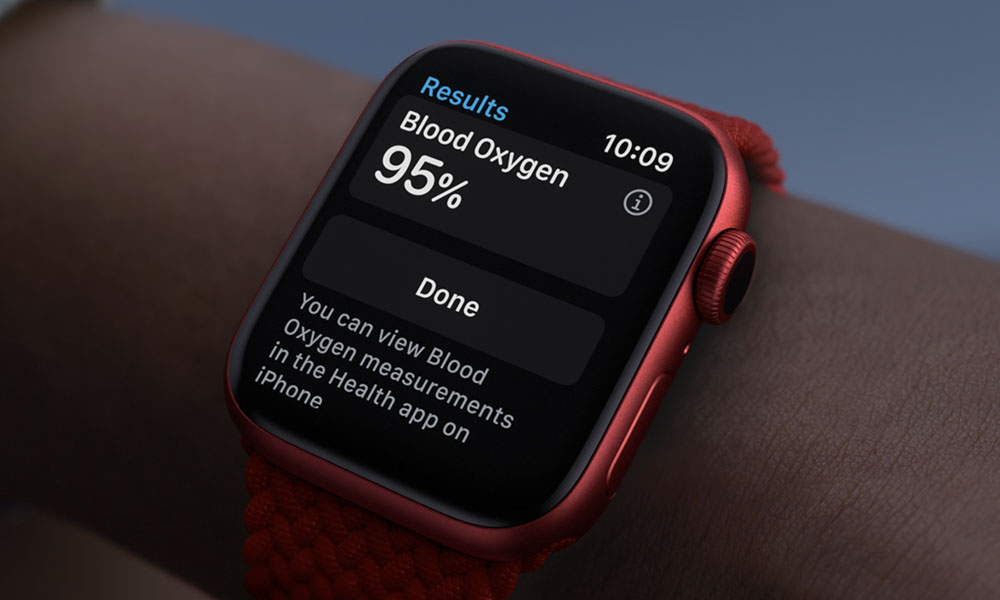Apple Watch Ban Looms as ITC Shoots Down Request for a Delay

Toggle Dark Mode
Apple’s most recent legal attempt to delay the pending Apple Watch ban in the US has just failed, with the International Trade Commission (ITC) denying its request for a stay on its October ruling.
A few weeks ago, a longstanding dispute between Apple and health technology company Masimo came to a head when the ITC ruled that the Apple Watch violated several patents related to pulse oximetry and the blood oxygen sensor on the Apple Watch.
In the ruling, the ITC issued both a limited exclusion order (LEO) that prohibits Apple from importing “infringing wearable electronic devices with light-based pulse oximetry functionality,” as well as a cease and desist order (CDO) prohibiting Apple from selling those infringing devices in any of its retail or online stores.
The CDO also orders Apple to stop “marketing” and “advertising” the Apple Watch Series 9 and Ultra 2 in the United States, which is another eventuality it’s already preparing for. Bloomberg’s Mark Gurman notes that Apple has already “begun preparing stores for the change” by sending “new signs to its retail outlets that promote the Apple Watch without showing photos of the Series 9 and Ultra 2.”
Since the Apple Watch SE isn’t affected by the order, it can remain on sale in the US, but any signs that include the Apple Watch Series 9 and Ultra 2 would likely run afoul of the ITC order.
What’s Next?
As with all ITC rulings, the order is subject to a 60-day Presidential review period before it goes into effect, which ends on December 25. US President Joe Biden could choose to intervene; however, there’s been little indication that the Biden administration will do so in this case, particularly as Masimo is also a US-based company, and Apple has shown no willingness to attempt a negotiated solution.
Hence, on December 25, the Apple Watch Series 9 and Apple Watch Ultra 2 will be banned from being imported into the United States. Apple will also no longer be able to sell those wearables through its retail channels, but since the CDO only applies to Apple, third-party retailers such as Amazon, Best Buy, and Walmart can continue selling whatever remaining stock they have available. However, the LEO also prohibits “withdrawal from a warehouse for consumption,” so third-party retailers won’t be able to receive any new units once their inventory is exhausted.
Since Apple has made it clear that it will be appealing the ITC’s ruling to a higher court, it filed a motion with the ITC requesting that the ban be stayed until the appeal could be heard. Unfortunately for Apple, the ITC has denied the motion, leaving the ban set to come into effect on December 25 — unless the White House intervenes.

According to Bloomberg, the White House is “tracking” the impending ban but doesn’t want to “get ahead of any decisions that may come,” White House Press Secretary Karine Jean-Pierre recently told reporters. While the President can intervene directly, the real power to veto the decision rests with the US Trade Representative, Katherine Tai, who is said to be “carefully considering all of the factors in the case.”
It’s possible that one of those “decisions that may come” is today’s ITC ruling, which the White House may have hoped would go in Apple’s favor, eliminating the need for the Biden administration to get involved. However, it’s still very rare for the White House to overrule an ITC decision like this; it’s only been done four times, and the last two incidents — in 2013 and 1987, respectively — revolved around patent disputes involving foreign companies, specifically Samsung.
This isn’t the first time that Apple has been down this road. The Apple Watch faced a similar ban earlier this year based on its ECG technology, which KardiaBand maker AliveCor claims Apple copied from it. The ITC ruled in favor of AliveCor last December, ordering a similar ban that the Biden administration declined to veto.
The only thing that saved the Apple Watch in that earlier case was a ruling by the Commerce Department’s Patent Trial and Appeal Board (PTAB) that the patents on which AliveCor was standing were invalid. That decision put the ITC import ban on hold, but Apple may still have to face the music, as AliveCor is appealing the PTAB ruling while Apple appeals the ITC ruling. A federal appeals court will decide that case sometime next year, so Apple may be in for a one-two punch here.
Apple vs. Masimo
In a related report, Masimo CEO Joe Kiani told Bloomberg that he’s open to settling with Apple, but the company hasn’t approached him. “They haven’t called,” he said, adding that “it takes two to tango.”
Kiani didn’t comment on how much money he’d expect Apple to put up to end the ban but did note he’d “work with them to improve their product.” Masimo has claimed from the beginning that all of the pulse oximetry technology in the Apple Watch was developed by Masimo as far back as 2013, alleging that Apple stole the technology in “a targeted effort” by pretending to work with Massimo before ultimately hiring away more than 20 of his key engineers — including Masimo’s Chief Medical Officer — to head up Apple’s own health technology efforts.
These guys have been caught with their hands in the cookie jar.Joe Kiani, Masimo CEO
Before any settlement talks could begin, Kiani said Apple would need to apologize and be willing to open an “honest dialogue” with his company.
Apple has already announced that the Apple Watch will be pulled from its online sales channels at 3 p.m. tomorrow (Dec 21) and that it will cease being sold in Apple retail stores on December 24. Kiani told Bloomberg that the move is merely a “stunt” to pressure the Biden administration to veto the ban, although the retail removal corresponds to the deadline anyway.
This is not an accidental infringement — this is a deliberate taking of our intellectual property. I am glad the world can now see we are the true inventors and creators of these technologies.Joe Kiani, Masimo CEO
Naturally, Apple flatly denies these claims. A 2020 lawsuit Masimo filed against Apple for intellectual property and trade secret theft ended in a mistrial earlier this year with a hung jury; a unanimous decision was required, but only six of the seven jurors sided with Apple.
Apple’s teams work tirelessly to create products and services that empower users with industry-leading health, wellness, and safety features. Apple strongly disagrees with the order and is pursuing a range of legal and technical options to ensure that Apple Watch is available to customers.Apple
Apple has repeatedly accused Masimo of engaging in this legal battle to clear the field so it can sell its own smartwatch without competition from the Apple Watch. Last year, Apple filed a lawsuit against Masimo, alleging that its W1 smartwatch infringes on Apple’s patents. It’s also convinced courts that some aspects of Masimo’s patents are invalid. The result has reduced Masimo’s original claim from 10 patents to two, but it only takes one infringement to get the Apple Watch banned.
Meanwhile, Apple is frantically pursuing a watchOS software update that could bypass the ban by changing how the blood oxygen sensor works — or possibly even disabling it entirely if that’s what it takes. It’s unclear whether that will be enough to satisfy US regulators that the Apple Watch Series 9 and Ultra 2 no longer infringe on Masimo’s patents, but Masimo is adamant that “the hardware needs to change” and a software fix won’t cut it. However, even if a watchOS software update can pass muster with US Customs, Apple won’t likely have it ready before the ban comes into effect next week.
With other retailers still permitted to sell the Apple Watch Series 9 and Apple Watch Ultra 2, it’s possible that you’ll still be able to get your hands on these models after the ban comes into effect, and those stock levels may even last long enough for Apple to find a way to overcome the ITC ruling. Further, since the ban only affects the sale of the Apple Watch in the US, it’s business as usual in every other country, including Canada and Mexico.








